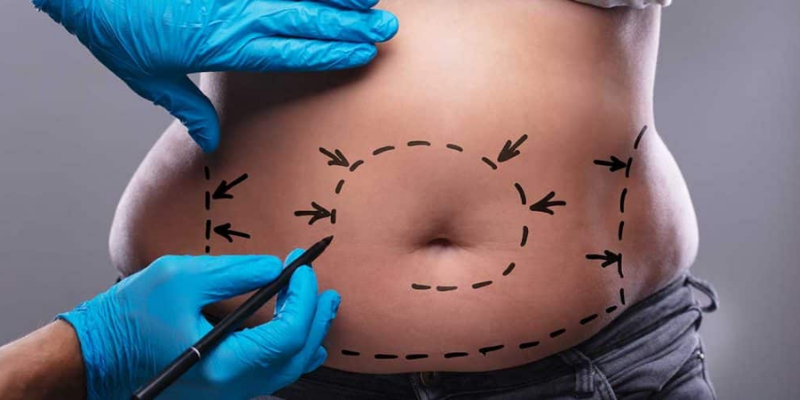Requirements For Weightloss Surgery
What are the requirements for weightloss surgery? One method that is becoming more and more common is bariatric surgery. In the long run, the results of bariatric surgery are usually much better than those of traditional methods. Also, the most important benefits of bariatric surgery are a drop in diseases caused by being overweight and a noticeable improvement in quality of life. Obesity is one of the most serious health problems in the world. Many scientific studies have shown that obesity is the main cause of many diseases that kill people or make them sick. When you divide the weight by the square of the height measure, you get a number.
For surgery, you need to be fully ready and very motivated. When you’re thinking about surgery, you need to know all the facts, including the risks and benefits. You should know that after surgery, you will need to make long-term changes to how you live and what you eat. Any kind of surgery that is done to help you lose weight is called “bariatric surgery.” Bariatric surgery is the name for all the operations that are done to help people lose weight. Simply put, gaining weight depends on how many calories you eat and how much energy your body uses. If the number of calories you eat is the same as the number of calories your body burns, your weight will stay the same.
What Are The Requirements For Weightloss Surgery?
When you eat too much, your stomach gets smaller. This means that you can fill up on less food and start losing weight. The way your body uses the food you eat changes after you have bariatric surgery. Part of your intestine is cut out of the way. Before you can find out if you can have bariatric surgery, your body mass index (BMI) must be over 40. People whose BMI is over 40 are more likely to be obese. At the same time, one of the requirements for weightloss surgery that the person not be pregnant, not have serious eating disorders, not have serious diseases, not drink too much alcohol, and have a stable mental state.
One of the most serious diseases of our time is obesity. Every day, more people are getting this disease. Obesity surgery procedures are the best way to get rid of extra weight. Because of this, bariatric surgery is very popular today, and every year the number of surgeries goes up compared to the year before. Bariatric surgery isn’t just one kind of surgery; there are more than one way to do it. The main goal of these methods is to either reduce the size of the patient’s stomach or the amount of food they get, or to shorten the area of the bowel where food is absorbed, or to do both. If we put these methods in order of how easy they are to use, we can think about intragastric balloons, gastric bands (or clamps), tube stomach surgery, and different bypass operations.
What Do You Need To Know About Weight Loss Surgery?
Type 2 diabetes is another important factor in deciding if a person is a good candidate for bariatric surgery. In Europe, a person with diabetes and a BMI of over 35 is a good candidate for metabolic surgery. In Asia, a person with type 2 diabetes and a BMI of over 32 is a good candidate. Also, in bariatric surgery, people’s body mass indices and diseases caused by obesity are looked at along with their current indications.
Also, the person’s mental state is looked at. The governing body’s new clinical practice guidelines say that surgery may also be a good idea for people with a body mass index of more than 30 kg/m2 who want to lower their risk of heart disease and for people with diabetes that is not under control. Patients who meet these criteria and want to spend money on bariatric surgery are usually evaluated by a team of medical and surgical doctors, a dietitian, and a psychologist. This is to see if the patient is a good candidate for surgery.
Weight Loss Surgery Before After
In the fight against obesity, bariatric surgery should not be judged on its own. During the preoperative period, people who choose this path should get ready for surgery both physically and spiritually. Diet and exercise plans are very important for this. After bariatric surgery, you should start paying attention to your diet again. You should eat at the stages your doctor tells you to, and you should start exercising as soon as you can. But with this plan, a person can get the body of their dreams and stay healthy at the same time.
Before having bariatric surgery, you should definitely eat a diet with a lot of protein. To burn off extra fat, a person shouldn’t forget to put useful fats in his body. He should also eat useful fats, but not too much, and get the calories he needs from carbs. But if he wants to lose weight, he should eat fewer calories than he burns. So, he can do by eating less fat and mostly carbs.
As it was done two days before surgery, the first few days after surgery are spent on a liquid diet with no grains. Right after this process, the granular liquid, mash, soft-solid, and solid periods are listed. However, these processes should be done completely based on the person’s personal traits and response to treatment. The most important part of the whole process is making sure the body gets the nutrients it needs. During the diet, protein and water are, of course, the most important things.
Tests Before Weight Loss Surgery
Checks are done with an ECG, a sft, a lung graph, a full count blood test, a detailed endoscopy, and an ultrasound of the lower abdomen. If the patient is healthy, the surgery will happen. Before tests, you must go without food for 10 hours and drink nothing for 8 hours. There are some tests that should always be done before surgery. Even though the tests done before surgery depend on the patient. These are regular blood tests for biochemistry, blood counts, and vitamin levels. Endoscopy is done with the person who needs it.
Whether is Gastric Balloon Covered by Insurance or Not?
The answer to whether is gastric balloon is covered by insurance or not can vary greatly depending on the individual policy, plan, and mainly the insurance company. Different insurance coverage may have different requirements for having an option as gastric balloon covered by insurance. So, it is important to be aware of your specific plan before seeking treatment. Additionally, some providers may also offer financing options or flexible payment plans for those having difficulty paying out-of-pocket expenses.

It is recommended that you speak with a healthcare provider, as well as contact your insurance company beforehand to determine if any gastric balloon procedures will be covered under your particular plan. This way, you can make an informed decision when it comes to pursuing treatment. Before making a decision regarding gastric balloon treatment, be sure to educate yourself on the potential risks and side effects associated with the procedure. Speak with your doctor about any concerns, whether is gastric balloon is covered by insurance, and discuss how best to minimize any potential risks associated with the procedure. Understanding these can help make selecting an appropriate treatment option easier and more affordable.



